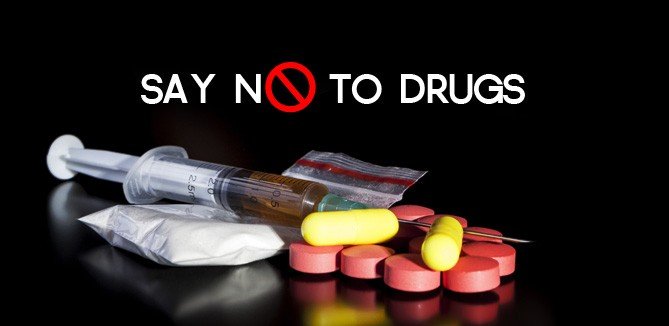
Introduction
Addiction—whether to alcohol, drugs, or other harmful substances—affects millions of families across India. While rehabilitation centers and medical professionals provide critical support, financial challenges often stop patients from seeking timely help. To address this, the Government of India and various state governments have introduced several schemes and programs for de-addiction patients.
At Bhandara Nasha Mukti, we aim to spread awareness about these schemes so that individuals and families can access affordable, quality care. This blog will provide a detailed overview of government and state-level initiatives, eligibility, benefits, and how patients can apply for support.
Why Government Support is Needed for De-addiction
Addiction not only affects health but also impacts a family’s financial stability. Many families hesitate to admit patients to rehab due to:
- High cost of detox and long-term rehabilitation.
- Lack of awareness about government-funded programs.
- Social stigma and fear of discrimination.
By offering free or subsidized de-addiction services, the government ensures that recovery is accessible to everyone, regardless of income.
National Schemes for De-addiction Patients
1. National Action Plan for Drug Demand Reduction (NAPDDR)
- Launched by: Ministry of Social Justice and Empowerment.
- Objective: To reduce demand for addictive substances through prevention, treatment, and rehabilitation.
- Benefits:
- Financial support for de-addiction centers.
- Awareness programs in schools, colleges, and workplaces.
- Vocational training for recovered patients to rejoin the workforce.
2. Central Sector Scheme for Assistance in Prevention of Alcoholism and Substance Abuse
- Aim: To support NGOs and rehabilitation centers in providing treatment.
- Support Provided:
- Funding for Integrated Rehabilitation Centres for Addicts (IRCAs).
- Free counseling, detox, and rehab services.
- Community-based awareness campaigns.
3. National Drug Dependence Treatment Centre (NDDTC) – AIIMS
- Managed by: AIIMS, New Delhi.
- Services:
- Free outpatient and inpatient treatment for drug and alcohol addiction.
- Detoxification and long-term rehabilitation.
- Research and development in addiction medicine.
4. Ministry of Health & Family Welfare Initiatives
- De-addiction centers in government hospitals provide:
- Free medical treatment and counseling.
- Support for co-occurring mental health issues.
- Referral services to specialized rehab centers.
State Schemes and Initiatives
Each state government has its own programs to address the rising problem of addiction. Below are a few examples:
1. Maharashtra
- De-addiction Camps: Conducted regularly in rural and urban areas.
- Support for NGOs: The government partners with NGOs to provide low-cost treatment in smaller towns like Bhandara.
2. Punjab
- OOAT Clinics (Opioid Substitution Therapy): Free medicines and counseling for opioid users.
- Drug De-addiction & Rehabilitation Centres: Government-managed facilities across districts.
3. Madhya Pradesh
- Community De-addiction Programs: Government health centers run awareness and treatment drives.
- Integration with Ayushman Bharat: Eligible patients can avail cashless treatment under PMJAY.
4. Delhi
- Delhi State Health Mission: Free OPD and inpatient addiction treatment in government hospitals.
- Mobile De-addiction Clinics: Reaching patients in remote areas.
5. Kerala
- Substance Abuse Prevention Program under the Social Justice Department.
- Free rehabilitation programs in collaboration with NGOs.
Financial Assistance for De-addiction Patients
1. Ayushman Bharat – Pradhan Mantri Jan Arogya Yojana (PMJAY)
- Provides health insurance coverage up to ₹5 lakhs per family per year.
- Covers hospitalization costs, including detox and treatment for related health issues.
2. State Health Insurance Schemes
- Many states like Maharashtra, Tamil Nadu, and Rajasthan offer state-specific health insurance plans that cover de-addiction treatment.
3. NGO Partnerships
- NGOs supported under government schemes provide free or subsidized de-addiction services, including counseling, detox, and rehabilitation.
How Patients Can Access These Schemes
- Visit Nearest Government Hospital
- Inquire about available de-addiction services.
- Get referred to authorized de-addiction centers.
- Contact Nasha Mukti Kendras
- Government-recognized centers like Bhandara Nasha Mukti provide guidance on applying for subsidies.
- Apply via Health Insurance Portals
- Register under Ayushman Bharat or state health insurance programs.
- Reach Out to NGOs
- Many NGOs supported by the government run free community-based programs.
Role of Bhandara Nasha Mukti in Supporting Patients
At Bhandara Nasha Mukti, we guide patients not just through recovery but also in accessing government and state schemes.
- Awareness: Educating families about available financial aid.
- Assistance: Helping patients apply for subsidies or insurance.
- Treatment: Offering affordable detox, rehab, and counseling services.
- Aftercare: Providing support groups and relapse prevention programs.
Benefits of Government Schemes
- Affordability: Reduced financial burden on families.
- Accessibility: Services available in both rural and urban areas.
- Holistic Support: Covers not just detox but also counseling, rehabilitation, and vocational training.
- Long-Term Impact: Encourages patients to reintegrate into society with dignity.
Challenges in Implementation
While government schemes are beneficial, there are challenges that need addressing:
- Lack of awareness among rural families.
- Stigma that prevents patients from coming forward.
- Limited infrastructure in smaller towns.
- Need for better monitoring of NGO-run centers.
At Bhandara Nasha Mukti, we work to bridge these gaps by spreading awareness and offering transparent, affordable care.
Conclusion
Addiction recovery is a journey of hope, resilience, and support. Financial constraints should never be a barrier to healing. Thanks to government and state schemes, patients now have access to affordable treatment, rehabilitation, and aftercare.
At Bhandara Nasha Mukti, we stand committed to guiding patients through this process—ensuring they receive both medical care and financial assistance for a successful recovery journey.
If you or a loved one is struggling, take the first step today. Recovery is possible, and help is available.
